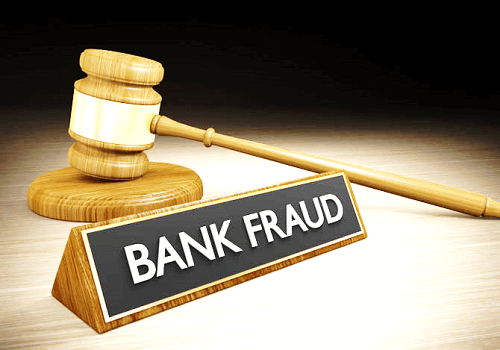This article is written by Vanya Verma, from Alliance University, Bangalore. This article talks about recent frauds that took place in the banking sector in India and the laws made to prevent such frauds.
Table of Contents
Introduction
India has seen a rise in banking frauds in recent years, the number of frauds in the country is substantial. These economic crimes are dangerous as the amount of damage they cause can extend far beyond the immediate losses. In the year 2019, for the time period between April to June, State Bank of India reported the maximum number of frauds with 1,197 cases amounting to Rs. 12,000 crore. Allahabad Bank was at the top where the bank’s own staff was involved in the frauds with 87 fraud cases. Followed by Central Bank of India and Punjab National Bank.
Recent biggest banking frauds in India
Nirav Modi bank scam
On 14th February 2018, one of the biggest scams in the banking sector was disclosed in India- Nirav Modi bank scam and the fraud amount was Rs. 11,400 Crore. The accused behind this scam was Nirav Modi who deals in diamonds and pearls and is one of India’s richest men and his uncle Mehul Choksi, owner of Gitanjali Gems. With the fraud transaction of Rs. 11,400 Crore, PNB became India’s second-largest public lender. With the consent of the employees of the Punjab National Bank (PNB) Mumbai branch, both the accused received “Letter of Undertaking” and on the guarantee of the PNB, they had withdrawn funds from the foreign banks. The assets of Nirav Modi worth over Rs. 5870 Crore had been confiscated by the Enforcement Directorate.
Allahabad bank scam
Allahabad Bank at Kolkata claimed disclosure of Rs. 2363 Crore in the PNB scam. The Allahabad Bank had however still stressed that it was sure that it would recover the amount as the money lent was fully secured by the documents under the Letter of Undertaking (LoU).
Through the overseas branch of Allahabad Bank in Hong Kong, the Allahabad Bank had been taking exposure with PNB as counterparty under various Letters of Undertakings issued through verified SWIFT messages. SWIFT is a network of messaging that is used by financial institutions to transmit instructions and information securely by a standardized system of codes. In this case to accomplish the scam the internal employees of the Allahabad Bank had misused the SWIFT (Society for Worldwide Interbank Financial Telecommunications) technique of the Bank. Allahabad Bank’s internal banking system was not connected to SWIFT and thus, the transactions escaped from being mentioned in the books of account of the bank. Thus, no record of the transaction was found between Nirav Modi and Punjab National Bank.
Bank scam by Vijay Mallya
The fraud amount involved in this scam was Rs. 9,432.Crore. Till February 2018, the Kingfisher Airlines owned by Mallya had borrowed this amount from 13 banks, in which the biggest lender was the SBI (State Bank of India) and lent Rs. 1600 Crore, then the Punjab National Bank with Rs. 800 Crore then IDBI (Industrial Development Bank of India) had lent Rs. 650 Crore followed by Bank of Baroda that had lend Rs. 550 Crore.
In November 2015, it came to the limelight that Mallya had borrowed the amount of $1.35 billion from Indian banks.
On 2 March 2016 Mallya left India and went to hide in London and to date, the Government of India is fighting for his extradition.
In March 2016, a consortium of banks approached the Supreme Court of India in order to plead before the Court to stop Mallya from going abroad as his companies owed a large amount of money to the banks, then a non-bailable arrest warrant was issued by the Court against Mallya. This case was unique as an individual alone had managed to borrow such a huge amount of money from so many banks. This calls into question the credibility of the people who are indulged in the credit appraisal process.

Rotomac pen scam
This scam involved Vikram Kothari, promoter and Managing Director of the Rotomac Global Pvt. Ltd. who had been arrested by the CBI (Central Bureau of Investigation) for fraudulently cheating 7 banks with Rs. 3695 Crore. A loan of Rs. 2919 was misappropriated by him and inclusive of interest the outstanding amount due to him is Rs. 3695 Crore. Rotomac deceived a consortium of banks by siphoning off loans that had been sanctioned to Kothari’s company for the export of wheat and other products.
The case had been registered after the CBI received the complaint from Bank of Baroda against Kanpur based Rotomac Global Pvt Ltd, the director of the company, his wife and son that is Vikram Kothari, Sadhana Kothari and Rahul Kothari respectively.
At first, the scam was estimated to be of Rs. 800 Crore, but after the investigation was carried out into the accounts of the company by the CBI, it was discovered that the company had taken loans from various banks as follows-
- Rs 754.77 crore – Bank of India
- Rs 771.07 crore – Indian Overseas Bank
- Rs 458.95 crore – Union Bank of India
- Rs 456.53 crore – Bank of Baroda
- Rs. 330.68 crore – Allahabad Bank
- Rs 97.47 crore – Oriental Bank of Commerce
- Rs 49.82 crore – Bank of Maharashtra
In this scam Rs. 824 crore is the principal loan amount and with due interest, the loss to the banks was of more than Rs. 1000 crore. The primary accused in this case was Kanishka Gold Pvt. Ltd. This company did not pay the loan amount of Rs. 824 crore which was then converted to NPA (Non-Performing Assets). The Enforcement Directorate had started the investigation in the case and CBI had registered a case against the company that is based in Chennai. Bhupendar Kumar Jain, the director of Kanishka Gold Pvt. Ltd. along with his wife Neeta Jain had fled the country.
The banks that had lent money to Kanishka Gold Pvt are as follows:
- Rs. 240 crore – State Bank of India
- Rs. 128 crore – Punjab National Bank
- Rs. 46 crore – Bank of India
- Rs. 49 crore – IDBI
- Rs. 54 crore – Syndicate Bank
- Rs. 53 crore – Union Bank
- Rs. 45 crore – UCO Bank
- Rs. 22 crore – Central Bank
This scam is one of the biggest scams in the country in the private sector of the bank in which 14 private and public sector banks were involved.
RP Info Systems bank scam
In this scam the RP Info, a computer manufacturing company and its directors were booked by the CBI for committing a fraud of Rs. 515.15 crore by cheating 9 banks. In order to take the loan, the company had used forged documents. On 28 February 2018, the raid was carried out by the CBI in Kolkata and other places where the office of the company is situated. One of the directors of the company, Shivaji Panja was interrogated by the CBI after the search was carried out at the corporate office in Kolkata and at homes of all the accused. The directors of the company, Shivaji Panja, Vinay Bafna and Kaustuv Ray cheated a consortium of 10 banks to the amount of Rs. 515.15 crore. The company obtained credit facilities by submitting fabricated documents to at least 10 public sector banks including State Bank of India.
Simbhaoli Sugar Mills bank scam
The case was registered by the CBI against Simbhaoli Sugars Ltd, India’s one of the largest sugar mills for defaulting loan Rs. 200 crore. The loan was taken from the Oriental Bank of Commerce. It is a private sugar company in Uttar Pradesh. GSC Rao, CEO of the company, Gurmeet Singh Mann, chairman of the mill, Gurpal Singh, Deputy Managing Director, GSC Rao, CEO of the company and six other members had been arrested by the CBI. According to the CBI investigation in 2011, the company had sanctioned a loan amount of Rs. 148.60 crore to the private company for sugarcane farmers, self-help groups and joint liability groups under the RBI scheme to 5762 sugarcane farmers, which was a tie-up arrangement to supply the sugar produce from 25 January to 13 March in the year 2012 to the private company and then it had fraudulently diverted the loans for personal use. On 31 March 2015, the loan taken by the company was converted into NPA.
Other scams in the banking sector
- On 8th May 2017, in connection to a fraud of Rs. 2,223 crore with the consortium of 25 banks led by SBI, the promoter of the Kolkata zone, Shree Ganesh Jewellery House, Nilesh Parekh was arrested because he used export finance from one bank and import finance from a different bank to evade the recovery of import finance.
- On 13th June 2017, the promoters of the Abhijeet Group that is a mining company were arrested for defaulting the loan payment of Rs. 11,000-15,000 crore. The loan was taken from financial institutions and 20 banks with the help of 132 shell companies of the Abhijeet group. A vehicle company was built by the Abhijeet group by the name Jas Infrastructure, the company was constructed so that it could procure a contract for construction of a power plant in Bihar to its group company Abhijeet Projects and misused loan of Rs. 790 crore from Vijaya Bank and Canara Bank.
- On 20th July 2017, the former head of Pune based, Maharashtra Bank was arrested by the CBI for committing a fraud of Rs. 836 crore by violating the rules for sanctioning amounts. The head of the bank had sanctioned the credit facility to a logistics company on the fabricated documents and gave a loan to 2,802 drivers to buy trucks.
- On 13 January 2018, the directors of the Gujarat zone, pharma company- Sterling Biotech and former director of the Andhra Bank were arrested for committing a fraud of Rs. 5000 crore, they used to withdraw the money from the bank accounts of several benami companies. Sterling Biotech took a loan of Rs. 5000 crore from a consortium of banks led by Andhra Bank, later the loan amount was converted into NPA.
- On 14th Feb 2018, fraudulent transactions were noticed by the PNB at one of its branches in Mumbai, the transaction amount was Rs. 11,346 crore. It later came out that one member of the staff from this branch had issued a fabricated Letter of Understanding to Nirav Modi’s company and Gitanjali Gems for buyer’s credit.
Laws made by the government to prevent the bank scams in India
-
Insolvency and Bankruptcy Code (IBC), 2016
This Code has been enacted to establish a unified framework that could resolve matters related to bankruptcy and insolvency. The method adopted by IBC is the creditor-in-saddle approach, the professionals with the interim resolution take over the management of the affairs related to corporate debtors at the outset. In this process, the accounts of the people related to NPA and the wilful defaulters are debarred from the resolution process.
-
Banking Regulation Act, 1949
This Act has been amended to provide authority to the Reserve Bank of India (RBI) so that it can give directions to the Banks and under IBC it can initiate the insolvency resolution process.
-
Fugitive Economic Offenders Act, 2018
This Act came into force on 21st April 2018. The Act has been enacted to prevent economic offenders from escaping the country. Any special court is empowered under this Act to confiscate all assets and properties of the offenders who are charged with default over Rs. 100 crores and try to evade the charges by remaining outside the jurisdiction of Indian courts. This. Fugitive economic offender’s property is attached and confiscated under this Act. The Act also enables the disentitlement of the wrongdoer from defending any civil claim.
-
SARFAESI (Securitisation and Reconstruction of Financial Assets and Enforcement of Security Interest) Act, 2002
This Act has been amended to include a provision for three months imprisonment if in case the borrower does not provide the details of his asset and in case of a lender obtaining the possession of the mortgaged property within 30 days. It was stated in the government statement that 6 new Debts Recovery Tribunals (DRT) have been established. For filing a case in DRT the minimum pecuniary limit has been revised to Rs. 20 lakh from Rs. 10 lakh in the year 2018 so that focus can be made on cases that involve higher value in the fast track courts.
Legal Entity Identifier (LEI)
Legal Entity Identifier (LEI) has recently been introduced by the RBI with the aim to prevent and check banking frauds. The reason behind establishing LEI was that the money laundering takes place through a big network of companies situated at different locations and thus make it complicated to keep a check on the company’s transactions.
YH Malegam committee
The RBI constituted this YH Malegam Committee to look into the matters pertaining to the rising instances of fraud. This committee was established to look into the matter of bad debts as well as the effectiveness of audits, rise in the number of cases related to fraud and the classification of bad loans. This committee was headed by the former member of the RBI’s Central Board of Directors, Y.H. Mangalam.
National Financial Reporting Authority (NFRA)
NFRA was constituted under Section 132 of the Companies Act, 2013. The aim of the central Government behind setting this was firstly to set an independent and separate regulatory authority that could assist in enforcing and framing the laws related to accounting and auditing and secondly, to improve the confidence of the public and investors in the entity’s financial reporting.
Conclusion
The consequence of banking frauds on bank entities can result in disruption and weaken confidence in the banking system. These frauds of huge amounts also damage the economy’s stability and integrity. Frauds can bring down banks, develop discontent, social unrest and political turmoils that includes weakening the supervisory role of the Central Bank. The banks have been exposed more to fraud in recent times due to technological advancement. It is need of the hour that some substantial actions should be taken by the government to inspect the capitalism and political intervention in the functioning of Indian Banks.
References
- https://wap.business-standard.com/podcast/economy-policy/psbs-report-rs-95-700-crore-frauds-are-banking-frauds-on-the-rise-119112000567_1.html
- http://lawjournals.stmjournals.in/index.php/jbil/article/download/142/98/
- https://www.businesstoday.in/current/economy-politics/govt-can-use-these-laws-to-check-banking-scams-clampdown-on-economic-offenders/story/302349.html
LawSikho has created a telegram group for exchanging legal knowledge, referrals and various opportunities. You can click on this link and join:
 Serato DJ Crack 2025Serato DJ PRO Crack
Serato DJ Crack 2025Serato DJ PRO Crack










 Allow notifications
Allow notifications


